Talking games | YS IX: Monstrum Nox
When a game tries to escape the prison of itself
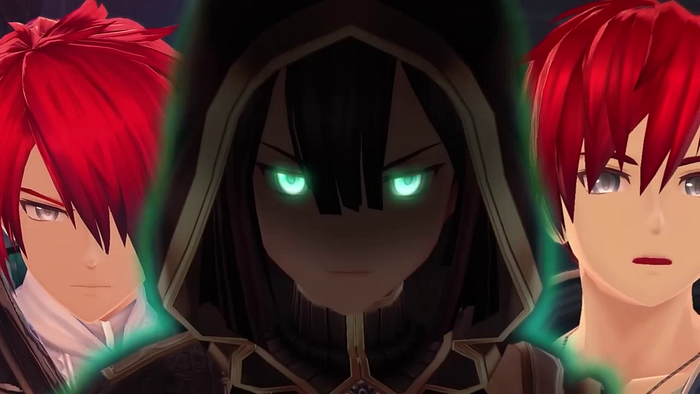
(warning: spoilers for Ys IX)

It’s all a prison somehow or another. Our jobs and our bodies, our governments and laws and history and relationships. Our memories. All of it, every inch, iron bars built to contain us; conservative tools to halt change.
Ys IX: Monstrum Nox, the ninth (kind of? but not really? it’s complicated) tale in the non-linear and ever-expanding history of The Greatest Explorer, Adol Christin, is a game about those prison bars and what they mean, asking if escape is ever truly possible, and if you’d actually even want that in the first place. The metaphor isn’t exactly hard to find: Ys IX is literally about a prison after all, and spends much of its time within those walls. Even when it isn’t, you are in a town built around that prison — an entire society that exists to support it, becoming little more than an extension in the process.
The quickest of summaries: Our hero Adol arrives at the city of Balduq only to be immediately arrested because, well, he is the protagonist of a franchise. He has more than eight games worth of world ending trouble following him, and people understandably don’t want their town to be the setting of the next one, thanks. It’s a cute little meta joke (for now), poking fun at just how often Ys games start with shipwrecks and Adol’s unnatural gift at fighting gods. He escapes imprisonment almost immediately, and is just as quickly wrangled into a mysterious group of 2000s anime goth warriors who, for reasons that elude them, are trapped in the city and must battle monsters normal humans can’t see. Now wanted with no escape and periodically ripped from regular life to fight, he has to unravel the mystery of what is happening and what exactly is going on with that prison. Then, as this prologue ends and the set-up is completed, the game fades in on another Adol just like the first, waking up in the prison you just escaped.

And so the game goes, one Adol trapped in a prison trying to escape, and another trapped in the city, trying break-in to discover answers. It doesn’t matter which direction: both are convinced some sort of freedom exists in what is actually only more bars.
Zoom out even further and the prison remains. Ys IX is a game, and like all games it operates in a world of repetition, rules, and order. It couldn’t work otherwise. Just as semi-invisible walls halt the characters, so too does the nature of their existence. The necessary structure of the game holds the cast like glue, forcing them to repeat the same movements, the same actions. You complete side-quests, do a raid, get a new party member, sneak into the prison, fight a boss, help the second Adol learn more about his captivity and repeat it all again. And again. And again.
I won’t lie: fifteen hours into this VERY regimented cycle, I was about done. I skimmed dialogue, did the absolute bare-minimum to progress, felt my eyes-glaze over at points and just…stopped playing for the day because “boy do I not want to do that.” That the game on normal (the difficulty I went with) is a bit too easy, never requiring any meaningful interaction with the mechanics or variety of skills available past a pleasant button-mashing certainly doesn’t help the mounting monotony, the sense that this world, and maybe even your own, is at a standstill.


But then, that’s the point, isn’t it? And it doesn’t take long for the game to start making these connections explicit, dragging them directly into the narrative (and saving me from sounding like a complete pretentious lunatic).
You are fighting to protect the status-quo, to stop an uprising against a colonial force that ripped a people’s autonomy and culture from them, with vague platitudes towards “looking ahead” and “finding a path together” made as justification for quelling social upheaval. You act as a prison guard, ensuring that oppression remains and the conservative standard continues unchallenged; or at least challenged in only the “proper” ways: non-violence, government action, mutual respect.
Which sounds…not great! But when the game reaches its climax and answers come, those political machinations give way to what the game is really talking about: itself. Adol. Ys.
Adol — and your entire party — it turns out, are homunculi. They are creations designed to serve a purpose. When the ostensible baddie finally reveals themselves, it is in the form of Vesta, one of the many minor NPCs populating the city. He changes, then changes again. He is everyone, no matter how small, these minor characters with their minor plots who give the game a sense of life, endearing the player to this digital place. He is the prison, and the prison is Ys — a series built on tradition and violent repetition in an iterative industry that craves endlessly for my most hated phrase: IP (intellectual property *shudders*).


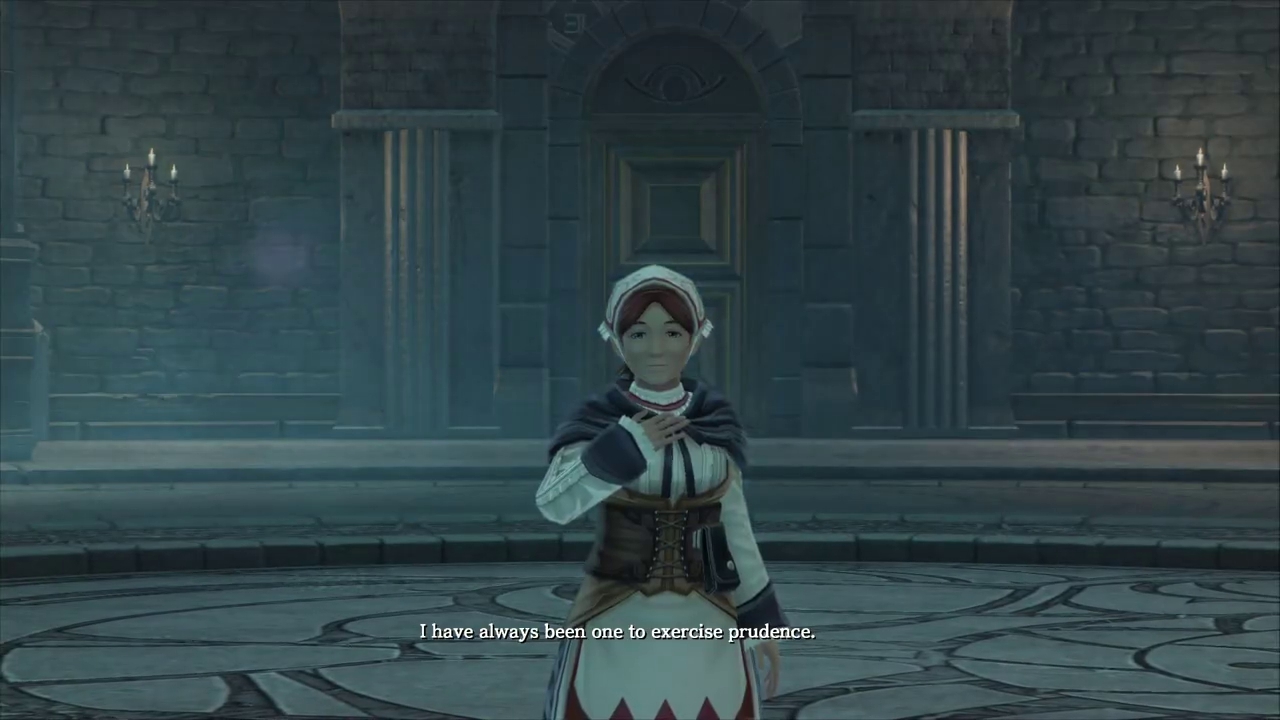


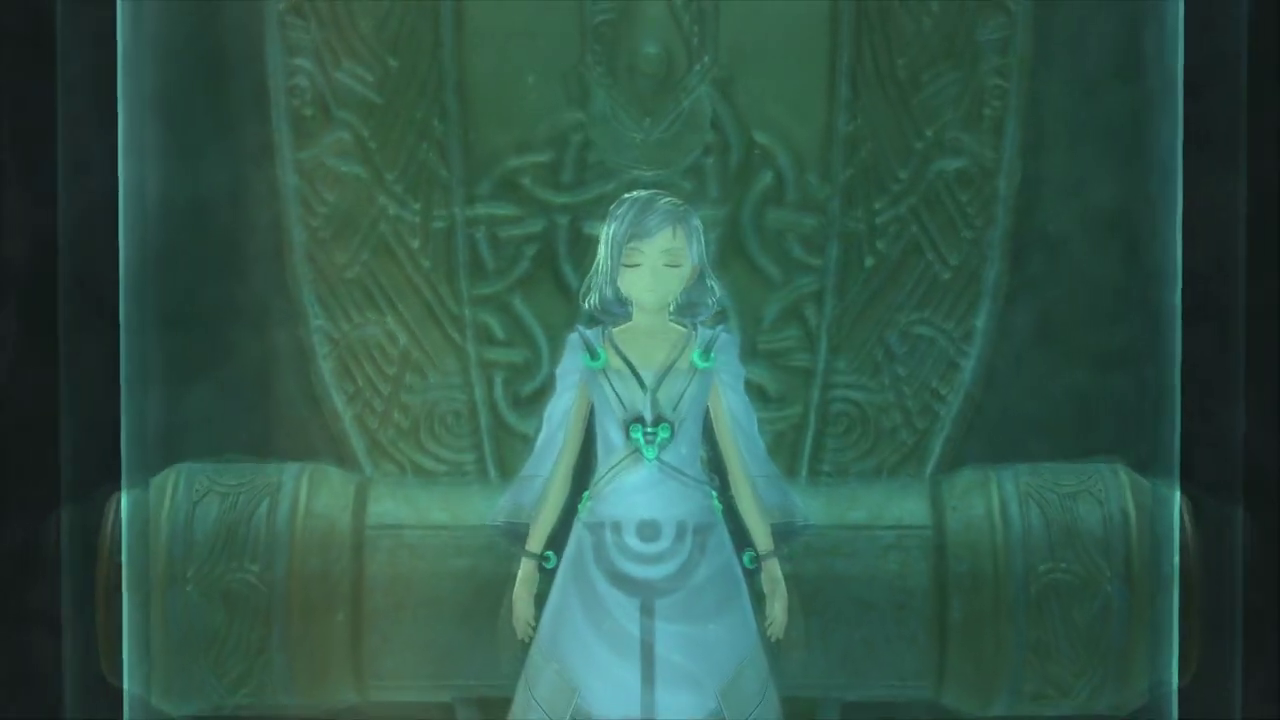
But why shouldn’t they abide by the system? Why shouldn’t Adol work against an uprising? Gamers (bit of a shudder there, too) have been trained by this same industry to think about the medium like a business. It’s not a game, it’s a new IP. It is Product. Content. It is something to read news articles about; analyze sales numbers, argue value through Metacritic scores. If, God forbid, that new title is successful, then it must soon face its inevitable, horrible future: sequels on sequels; more, bigger, better, safer, until the world stops caring.
That is the true villain of Ys IX and the true shape of Ys — a homunculi series cursed to be born and reborn for eternity as long as there are profits to be made.



If Ys IX is a prison, then it is like the Special Sector inside Balduq Prison — a comfortable haven of rich taste and delicious foods, voluntarily entered by those looking to escape in confinement. And what it asks at the end, after another god-like being has been killed and a status-quo has returned is as simple and complex as a question can get: is that such a bad thing?
Part of the says no, that the memories are valuable, that they have connected people and helped others, that the comfort expected from the series provides what so many games strive for — a respite from the world.
But another part of the game is there too, and it cries out “yes.”
As the credits roll, Adol leaves the prison city, more adventures and companions and memories awaiting him. Has he actually gone anywhere?

(screenshots taken from Game Movies Cult’s very good cutscene collection videos
Music of the Week: Heisei by Yuta Orisaka
A critical darling in Japan, Orisaka’s nostalgia-tinted folk pop packs banjos and pianos and ramshackle horns in a way that calls to mind less the heisei era, but the showa—playful post-war swing and pop. It’s not all rose-tinted glasses though: this is an album of constant surprise and subtle eccentricities—the stuff that’ll delight a music theory knower and charm the ignorants (me). The kind of full, warm pleasantness that is perfect for beautiful spring days.
Book of the Week: The Moon by George Akiyama
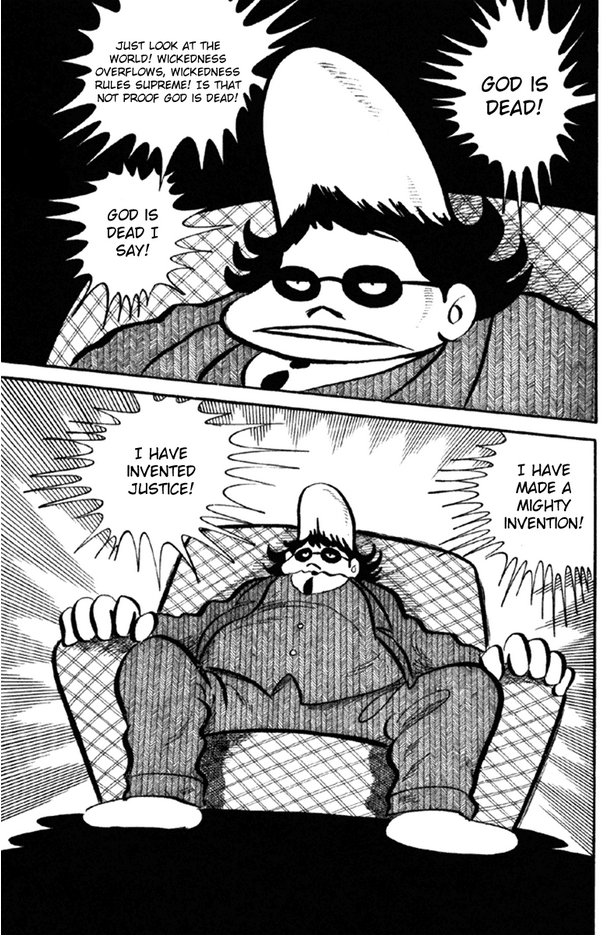
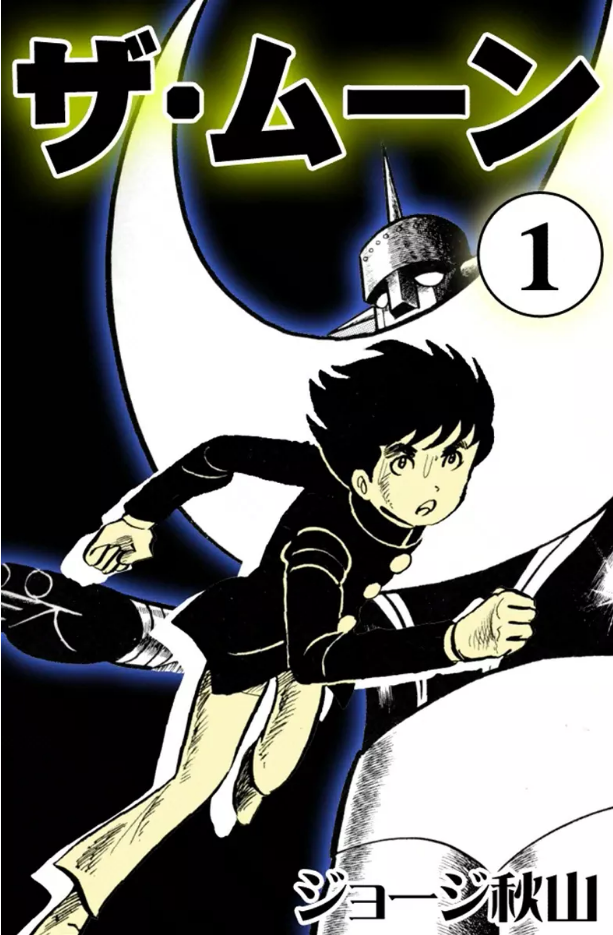
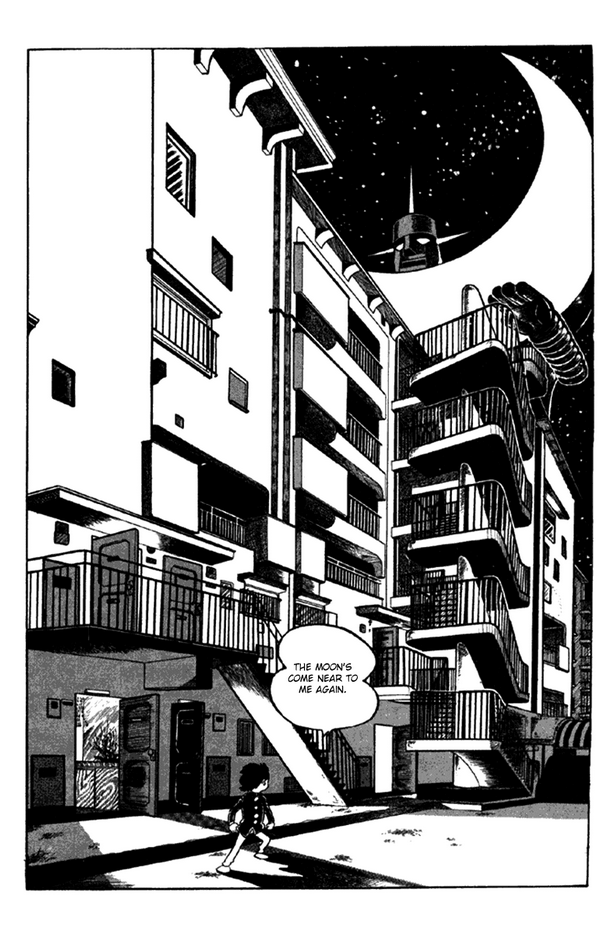
Opens with the line “God is dead!” and doesn’t slow down from there. Akiyama’s fiery, dream logic giant robot series hits like someone packed their subconscious into a shotgun and blasted you square through the chest. Increasingly apocalyptic, the group of children at the center of this tale get wrapped up in all sorts of surreal complications with the concept of “justice”, the titular robot always looming over the proceedings like some horrible god. Feels like the starting point for a certain genre of psycho-mecha and like a lot of starting points, is better than 99% of what followed.
Movie of the Week: Evil Does Not Exist (dir. Ryusuke Hamaguchi, 2023)

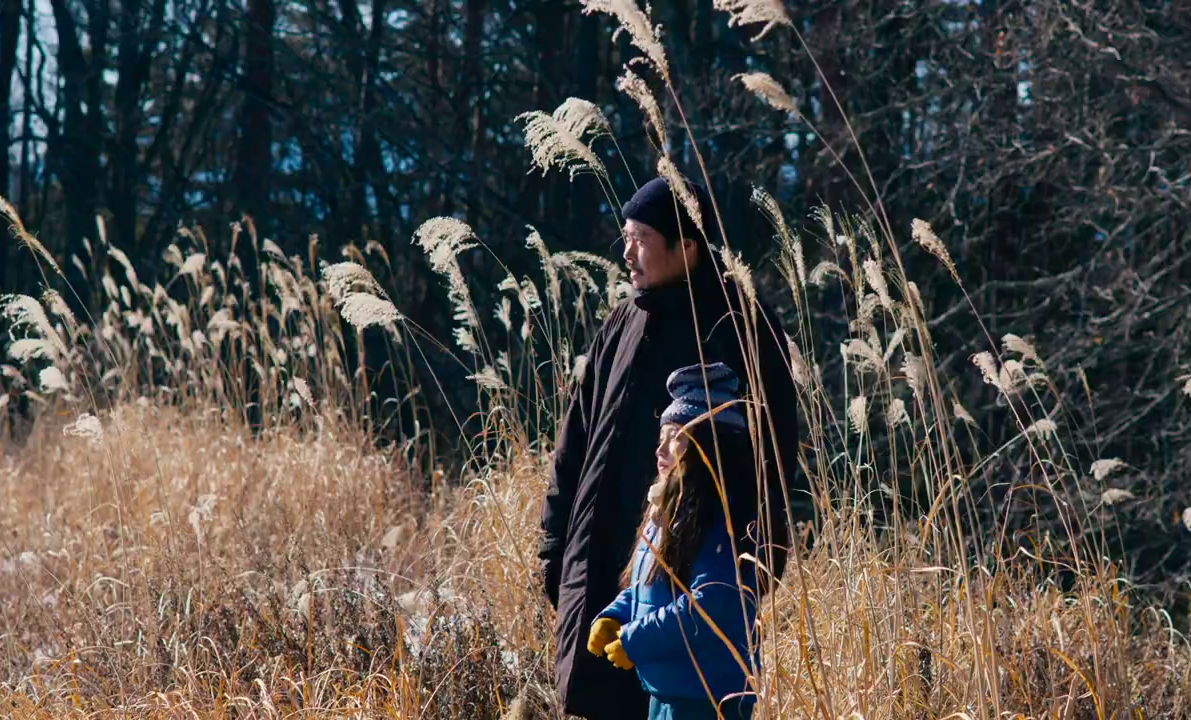

The latest from Japan’s major international director. Utilizing some of the best digital photography you’ll find to render the world flat and undisguised, what could be an overly obvious tech vs nature morality play about a company trying to turn a small community into prime glamping real estate, is instead a patient, complex, deeply human drama that suddenly crescendos with one of the most startling (and thought provoking) endings of the past few years. Very few directors working right now have as good a sense of filmic rhythm as Hamaguchi, who blesses us with some astounding new shot every single cut. My current movie of the year, and I have a feeling it’s gonna be hard to beat.
Have thoughts about anything covered this week? Got a recommendation you’re dying to share? Want to tell me how handsome and cool I am? Leave a comment below!
oh, and here's a great video about one of Japan's best directors


